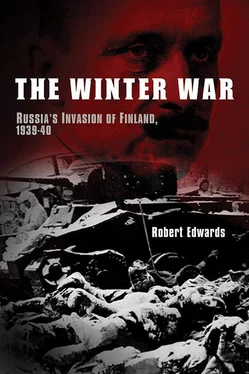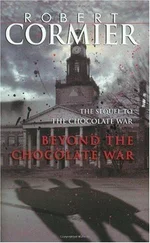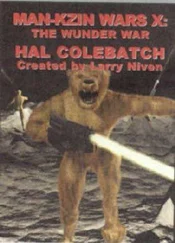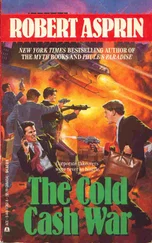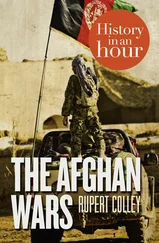That this had been profoundly depressing to Mannerheim was clear; his residual irritation with, and disdain for bien pensant Social Democrats had been only one result; another, more important given his contempt for anything so vulgar as party politics, which would always isolate him, had been a fervent but frustrating campaign for Finland’s hard-fought independence (largely his work) to be offered some measure of guaranteed security by the simple ability to defend herself. For whether or not Mannerheim was a schemer, an intriguer or even (as some muttered) a Crypto-Fascist, [10] He was not; he despised all totalitarian regimes, referring to both Stalin and Hitler as tyrants’.
he was above all a soldier, and a very good one. How good, the assembled thousands lining the streets on that June day would find out, and rather sooner than they would like.
For, in 1937, Finland seems to have had little concept of the world that was rapidly evolving around it. To be sure, Finns were aware that they sat on the Lip of the Bear, but the fact that the bear now wore a red suit was actually neither here nor there, for while Russia was still generally regarded by the bulk of the country as the perivihollinen, the traditional enemy, it was also true that a large minority of Finns embraced some version or another of the Marxist-Leninist agenda. [11] Lenin, as a frequent visitor to Finland (and seldom by choice) was, as an icon, extraordinarily popular as the man who was seen (and promoted as, by the far left) the granter of Finland’s freedom; in fact he had tried to crush Finland when his agenda was questioned.
This created problems on more than one front, a vociferous far-right wing being only one. Tales of Moscow’s Finnish fellow-travellers being beaten up and thrown ceremonially (and none too carefully) back over the Russian border, from whence they were deemed to have come, were common.
The legacy of Finland’s civil war was a heavy burden and several times serious friction had broken out. Finland’s civil solution had been straightforward: redistributive social democracy, punctuated by hard and resolute police action. As a result, as this agreeable birthday parade made its way around the streets of the capital, the nation could now look with some pride at its achievements since independence: a literacy rate (in one language or another [12] About 11 per cent of the population spoke Swedish as a mother tongue, including Anaheim and the other national treasure, lean Sibelius. Of all the languages Mannerheim spoke—Russian, Swedish, English, German, French and Finnish—he spoke the latter least intelligibly, about as well as Winston Churchill spoke French.
) of 100 per cent was the most encouraging sign for the future, but the economy as a whole was also in a very healthy state.
Relations between these two new neighbour nations, both of a similar age, were de minimis; while foreign trade in Finland was booming, little of it was with Russia. In fact Finns did more business with Greeks than they did with Russians, but none more so than with Britain; it was not a situation that anyone was particularly anxious to correct as Finland turned its collective back on Russia and bent to its task of creating a robust, durable and inclusive social democracy. Nothing, it was reasoned, could be allowed to stand in the way of that, for the price of failure would be total. No individual career was a card of high enough value to justify any amendment to the commonly agreed agenda, the international recognition of which was now on the horizon—in August 1940, Finland was due to host the Olympic Games. For a culture that so respected physical prowess as this one did, it was the perfect endorsement.
It was now becoming clear, however, that this extraordinary progress had been accomplished at huge risk. A comparison of expenditure on national defence and national education (about the same) revealed that while secondary school fees were actually lower in Helsinki than they were in Moscow, the nation was only militarily equipped to defend itself against an aggressor from perhaps forty years previously. As the world political crisis accelerated, in both Spain and Asia, with the same dizzying pace as a tipsy Karelian farmer hurrying home on an ice road in his (probably British) car, it was clear that something had to be done. Hence this parade—a very untypical piece of political theatre. With Mannerheim now back on public display (and perhaps, for his critics, safely close to retirement), the message was going out.
In Moscow that June, matters could not have offered more contrast. Another marshal, also late of the Tsar’s army, was about to meet his own fate, his blood-spattered confession even then being thrashed out of him. He would confess to a raft of trumped-up charges, which included Bonapartism, treason and sexual depravity, none of which, of course, were true. With Bolshevik thoroughness, Mikhail Nikolayevich Tukhachevski—‘the violin maker’ [13] His hobby. He was the chief sponsor, it seems, of Dmitri Shostakovich.
—was being comprehensively dismantled as a hero, a public figure, a soldier and a man. His real crime dated back to the Polish campaign of 1920, when he had had the temerity to express his contempt for the military efforts of three martial mediocrities: Stalin, Voroshilov and Budenny. Unhappily for Tukhachevski, these men were now rather important and, as soon as it was safe to move against this gifted but arrogant soldier, they did, and swiftly. He would be shot in the early hours of 12 June 1937, as the great purge which had swept the USSR in the wake of the death of Kirov suddenly stepped up a gear. The ‘Party of Lenin and Stalin’ turned on the armed forces and the men who commanded them, fearing that they were powerful, accomplished, cynical and a threat; as the Party was clearly failing the State, the State, rather than the Party, had to suffer.
The blood-letting of the purge was almost unparalleled in history, perhaps the closest previous example having been the mass public ‘sniffings-out’ conducted over a century before in Zululand, and indeed there is much in common between Josif Stalin and Shaka the Zulu king. For the purges were just that, the sniffing-out of traitors, plotters, wreckers and schemers by a cadre of magicians, in this case the NKVD, [14] People’s Commissariat for Internal Affairs. Until 1933, this organ was known as the GPU, and was often referred to as such until 1940.
whose personnel could conjure up a confession to the most improbably outlandish of crimes by the simple expedients of barbaric torture and bloodcurdling threats to friends, family and colleagues.
Tukhachevski had been perhaps the perfect revolutionary soldier, ‘brilliant, quick of mind, with a streak of cruelty allied to an impetuousness which bordered on the rash.’ [15] John Erickson, The Soviet High Command.
This remarkable man had by the time of his death forged the Red Army into the most feared military instrument on earth. Unlike certain of his contemporaries, he had studied the military art in whatever form he could obtain access to it. His passing would serve to put the Workers’ and Peasants’ Revolutionary Army into far less careful hands as it gave the signal for the wholesale arrest, torture, imprisonment and execution of a great swathe of the Soviet command. ‘Never,’ wrote the historian Roy Medvedev, ‘has the officer corps of any army suffered such losses in any war as the Soviet Army suffered in this time of peace.’ [16] Cited by Martin Amis, Koba the Die ad Jonathan Cape, 2002).
Catastrophic though these losses would be for the Red Army, they would have their effect elsewhere as the ‘time of peace’ started to look more and more finite, particularly for Finland, the country most easily within reach of a Soviet government that was starting to behave like a large and unpredictable drunk, slumped angrily against the same bar top that the Finns were forced, by reason of geography and history, to share. It was not a happy position in which to be, particularly with no army to speak of.
Читать дальше
